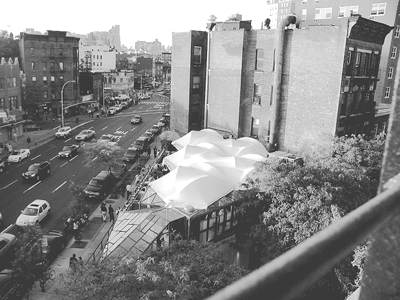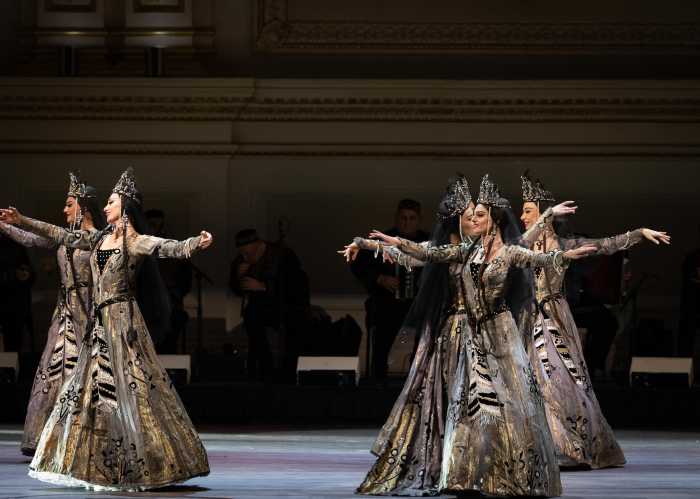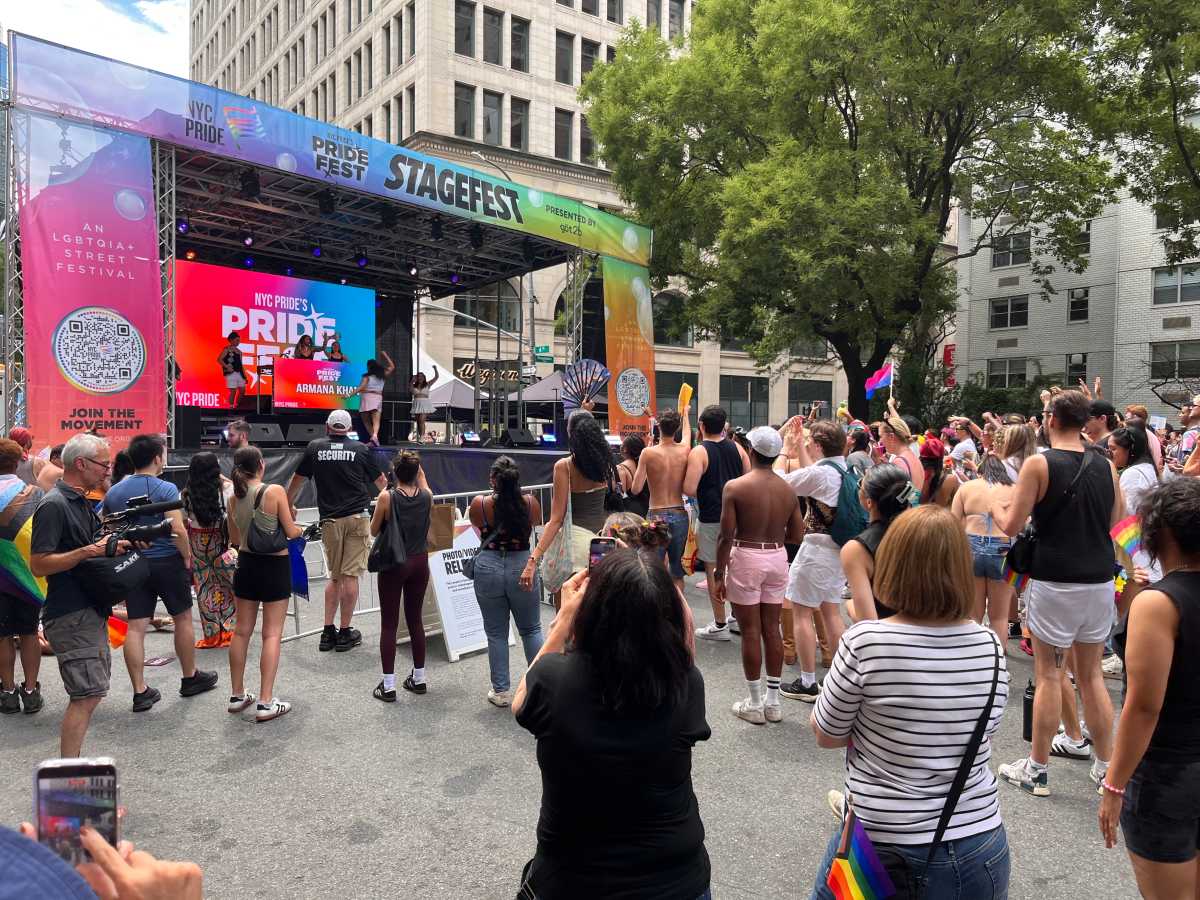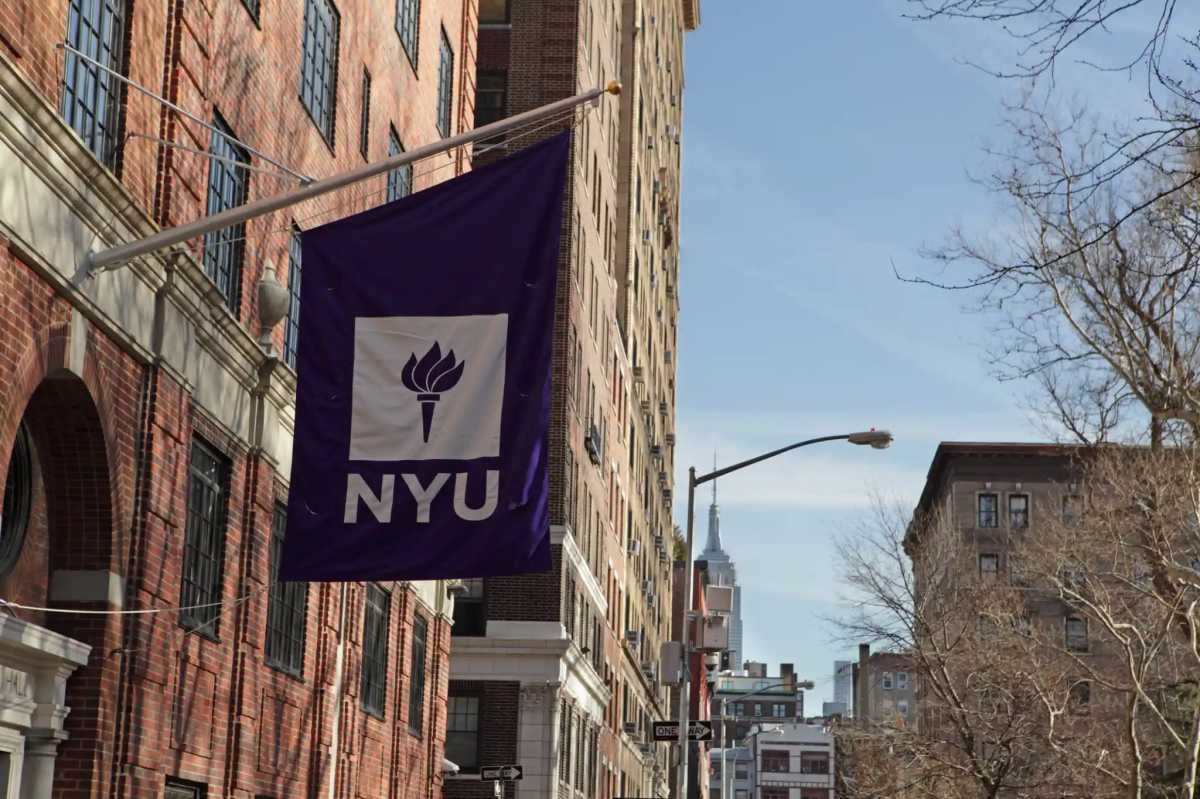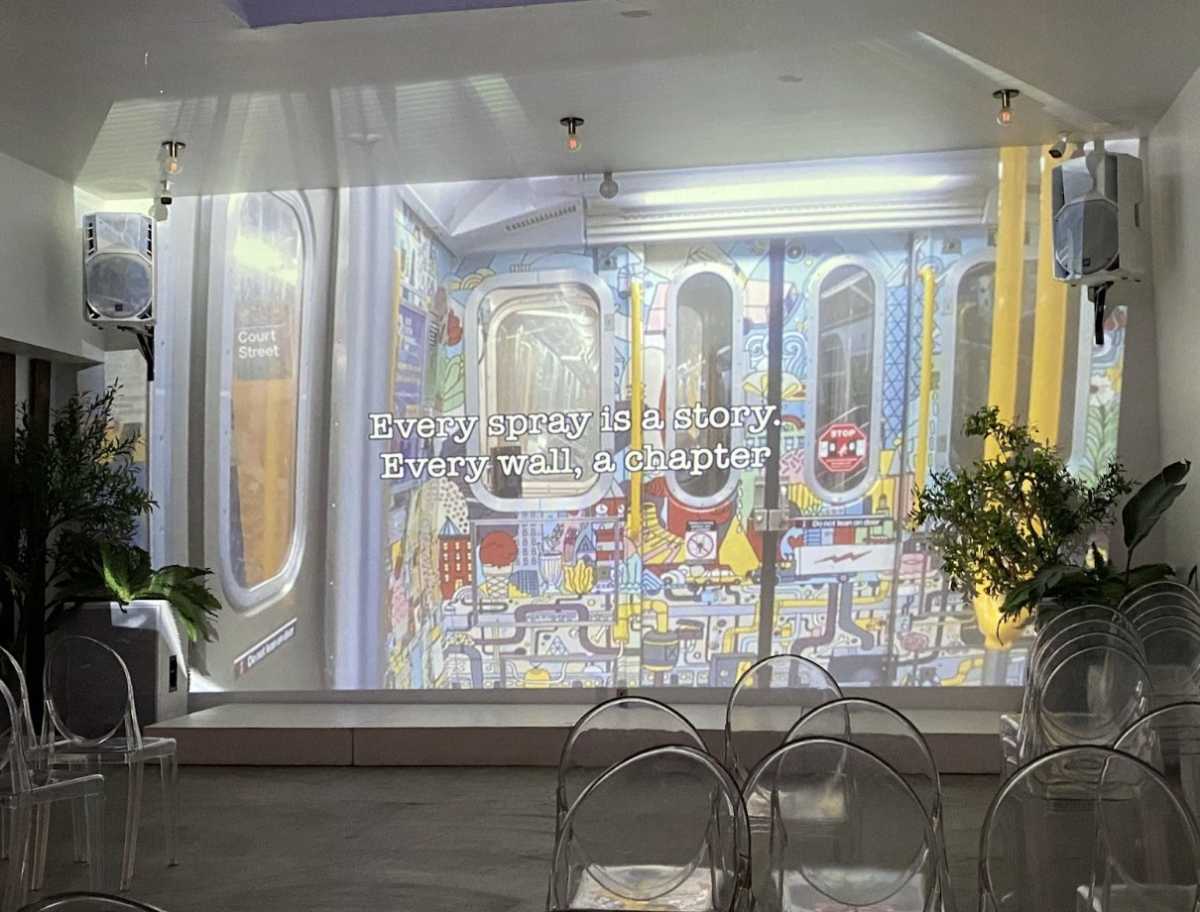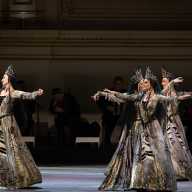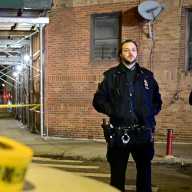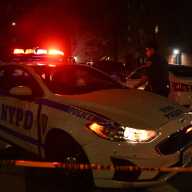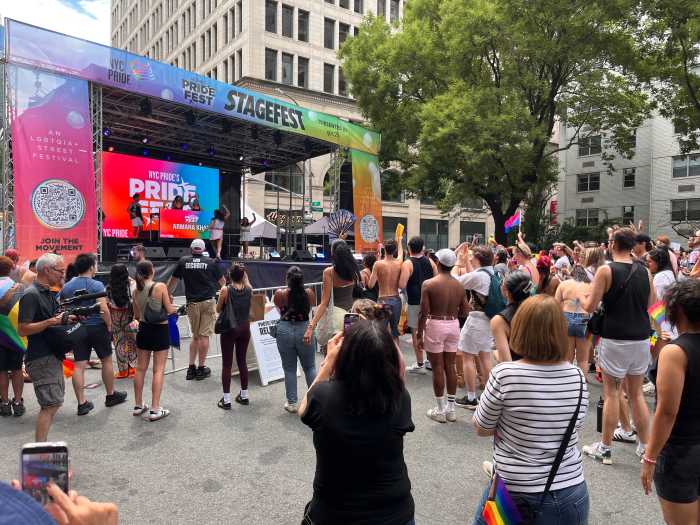By Janet Kwon
Coils of ivylike plants wind their way in and out of a wooden trellis fashioned to create a makeshift ceiling. Everything from the barstools to the menus fits the color scheme of burnt orange, sage and pea green with splashes of mustard yellow. The clinking of dishes and martini glasses and the pumping bass of a Latin and techno beat intermingle with the steady stream of conversation — that crescendos as the night wears on and more bodies fill the cozy rooftop space. The crowd — mostly trendy twentysomethings with colorful cocktails or designer purses in hand — are sinking their teeth into the exotic mélange of Japanese, Brazilian and Peruvian cuisine that is Sushi Samba’s trademark.
A pleasant evening breeze blows over this scene, all happening on a rooftop underneath large beige tents. These tents may blend into the swanky décor of the restaurant featured in “Sex and the City,” but they’ve been the source of much dispute among surrounding neighbors on Seventh Ave. S. So far, the disputes haven’t resulted in taking these tents down, but recent legal proceedings may remove them for good.
Sushi Samba moved into Greenwich Village in 2000 and set up the rooftop tents in 2001. Ever since, the tents have been the source of a running conflict between the restaurant and the city’s Landmark Preservation Commission.
According to Virginia Waters, senior counsel at the city’s Law Department, Sushi Samba requested and received permission for an outside, unenclosed trellis on the roof. However, when they covered the trellis with canvas tents in 2001, creating an enclosed, all-season area, L.P.C. issued a violation. In February 2002, Sushi Samba applied to legalize the tents, but was denied by L.P.C. The restaurant challenged this rejection in January 2003, but Civil Court Judge Faviola Soto ruled in favor of L.P.C. However, Judge Soto did not issue fines or order the rooftop dining area’s closure.
More than a year later, in April 2004, the owner of Sushi Samba’s building at Barrow St. and Seventh Ave. S., Alexander Varveris of O-Porto Holding Co. Ltd., filed for bankruptcy. The restaurant, the largest tenant in Varveris’s building, became an interested party in the bankruptcy case in 2004, said Waters.
In September 2004, L.P.C. gave Sushi Samba permission to build an enclosed second-story structure to replace the outdoor tents, to which both the restaurant and Varveris agreed. However, Waters added, Varveris’s brother, George Varveris, signed the consent agreeing to do this work, and Alexander Varveris claimed that his brother didn’t have the proper authority to do so. As a result, Alexander Varveris revoked the consent for the second story in October 2004.
Following Varveris’s revocation of consent, Sushi Samba has been in court trying to regain that consent in order to build the second-story enclosure. Waters said that, in February of this year, the city submitted a motion to get the tents removed for the third time, which she had wanted to file in May 2005, but couldn’t because the bankruptcy proceedings stayed any action.
To date, the tented dining area has been illegally operating for more than five years.
Marc Roth, Varveris’s attorney, refused to comment because the case is still in litigation.
The Greenwich Village Society for Historic Preservation sides with L.P.C. regarding the tents.
“Violations like this one which are allowed to remain for years undermine the landmarks system and do a great disservice to the many residents of Greenwich Village who care about our neighborhood and follow the rules and regulations of the Landmarks Preservation Commission,” said Melissa Baldock, G.V.S.H.P.’s director of preservation and research.
While the tents continue to come under attack from the neighbors, the city and preservationists, customers, on the other hand, can’t seem to get enough of the breezy rooftop atmosphere.
According to Hayes Swope, manager of the Sushi Samba at 87 Seventh Ave. S., 75 percent to 80 percent of the restaurant’s customers specifically request rooftop seating, particularly if the weather is nice.
Swope, who has managed the Village restaurant since last October, also said that because of the business the tented rooftop does, he doesn’t want to see it go. With the rooftop dining section gone, “it would definitely have a huge effect,” he said.
Yet, the flocks of customers seeking to dine underneath these famous, or infamous — depending on one’s point of view — tents may be beneficial to the restaurant’s bottom line but not for its neighbor relations.
“Would you like to wake up to ‘Happy Birthday’ being sung until 3 in the morning? The noise is unbelievable,” said Gabrielle Jones, who lives in the building — also owned by Varveris — adjacent to the restaurant.
This “unbelievable” noise may be attributed to the overload of people on the roof. According to an inspection by the Department of Buildings in July 2004, the rooftop occupancy was 146 persons, while the restaurant is only certified to hold 50.
Jones also noted that there are 14 air-conditioning units from the restaurant that are “directly pushed up against” the brick wall of her building. The machines make her bed shake on a regular basis, she said.
In response to these complaints, Sushi Samba manager Swope explained, “I’ve been implementing a lot of changes like shock absorbers with the A/C.”
Hayes also said that he’s in the process of setting up a community meeting for the neighborhood so that he can better understand how to respond to complaints.
“Basically, I want to be a good neighbor…I want this all to be resolved,” he said.
Waters shares Swope’s sentiments.
“If the judge ruled in our favor, they have to take the structure down,” Waters said. “If any judge finds that the consent [given by George Varveris] is valid, then they have the permission to build the true second story. Either way, the city hopes that there is a resolution — a legal resolution.”
As of June 6, both sides seemed to have gotten their wish, to some extent. According to Waters, Sushi Samba and Alexander Varveris have decided on a settlement, in which Varveris will rescind his revocation — meaning that Sushi Samba has given full consent to take down the tents and build a true, enclosed second story.
After the settlement was reached, Landmarks urged the court to fine Sushi Samba $5,000 per day of violation since September 2001, which totals $8.9 million to date. In addition, on June 9, Landmarks sent a letter to Sushi Samba, telling them that they have until Nov. 7, 2006, to build the enclosed second story. Landmarks is waiting for the judge on the case to rule on the fine and the expedited construction of the enclosed structure.



